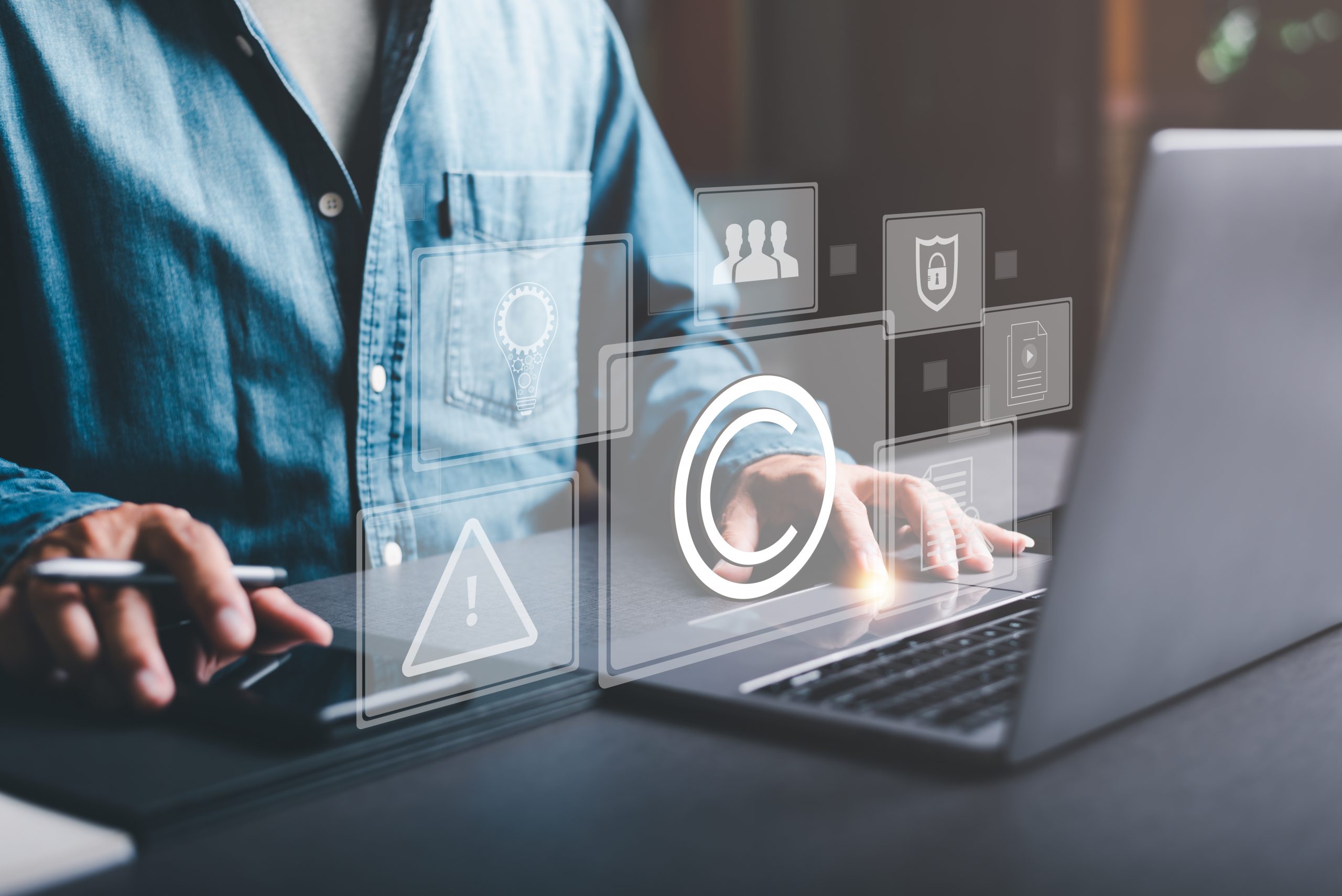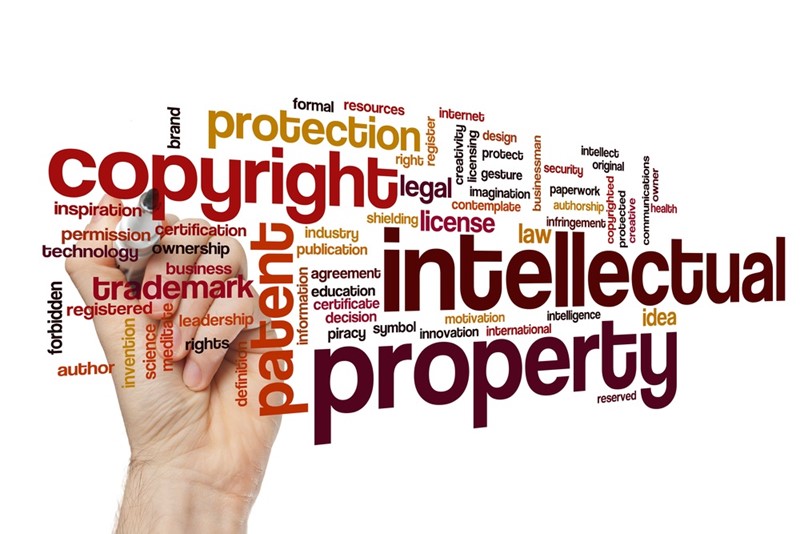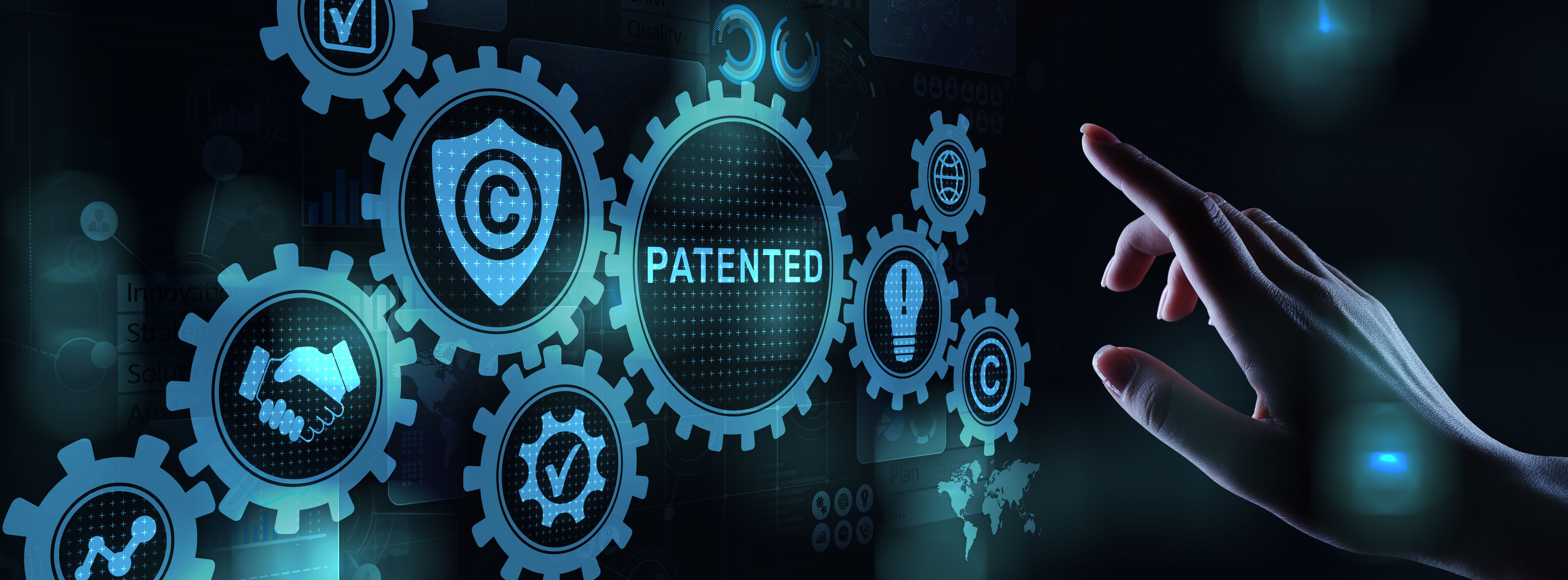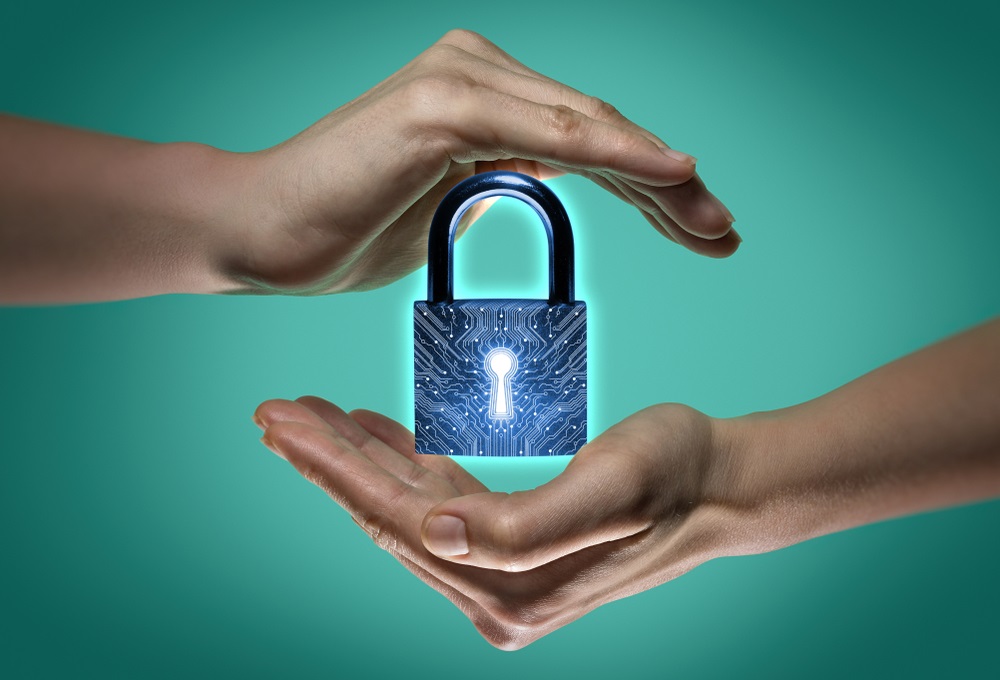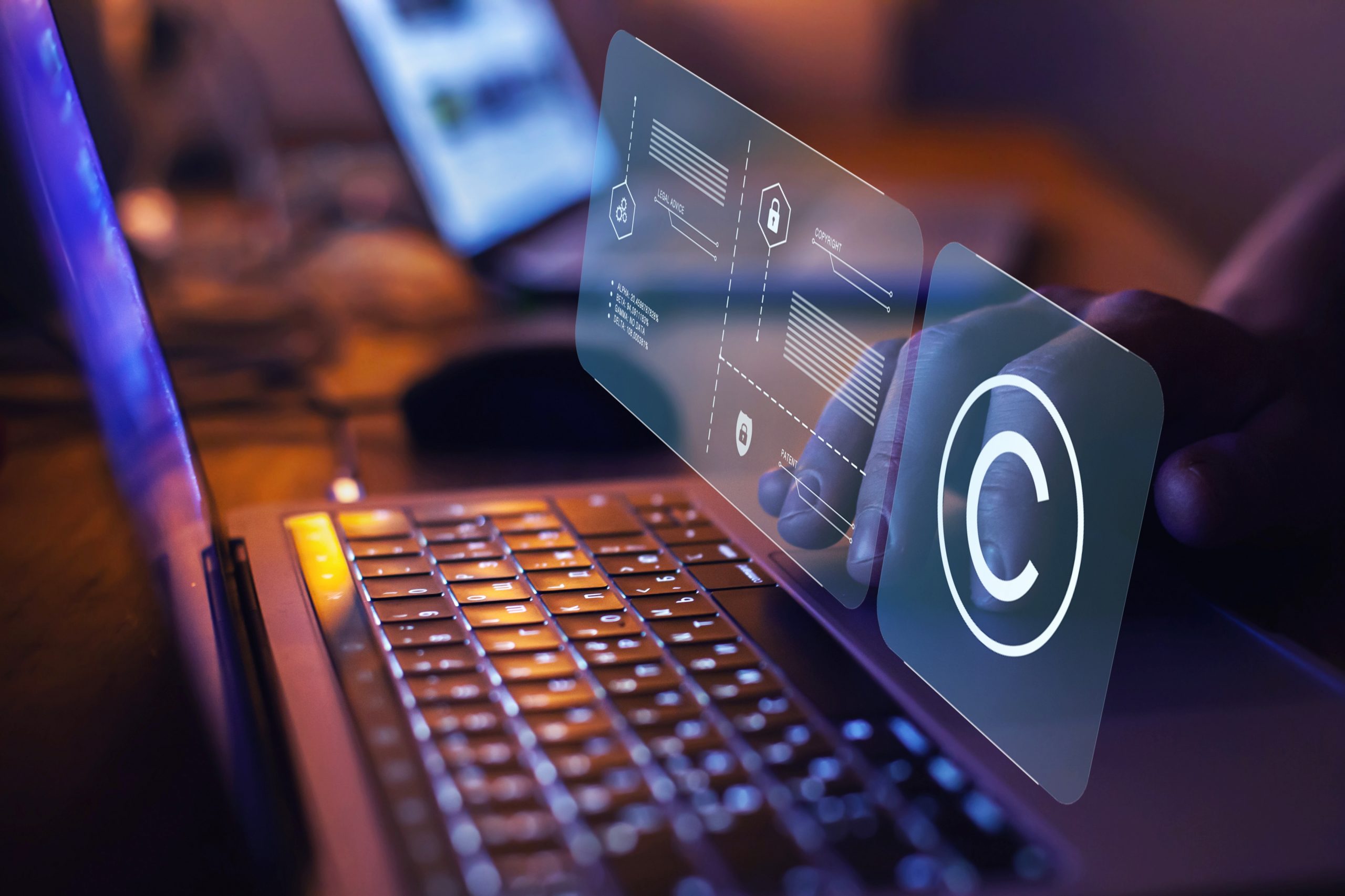WP_Query Object
(
[query] => Array
(
[paged] => 3
[news-type] => blog-en
)
[query_vars] => Array
(
[paged] => 3
[news-type] => blog-en
[error] =>
[m] =>
[p] => 0
[post_parent] =>
[subpost] =>
[subpost_id] =>
[attachment] =>
[attachment_id] => 0
[name] =>
[pagename] =>
[page_id] => 0
[second] =>
[minute] =>
[hour] =>
[day] => 0
[monthnum] => 0
[year] => 0
[w] => 0
[category_name] =>
[tag] =>
[cat] =>
[tag_id] =>
[author] =>
[author_name] =>
[feed] =>
[tb] =>
[meta_key] =>
[meta_value] =>
[preview] =>
[s] =>
[sentence] =>
[title] =>
[fields] => all
[menu_order] =>
[embed] =>
[category__in] => Array
(
)
[category__not_in] => Array
(
)
[category__and] => Array
(
)
[post__in] => Array
(
)
[post__not_in] => Array
(
)
[post_name__in] => Array
(
)
[tag__in] => Array
(
)
[tag__not_in] => Array
(
)
[tag__and] => Array
(
)
[tag_slug__in] => Array
(
)
[tag_slug__and] => Array
(
)
[post_parent__in] => Array
(
)
[post_parent__not_in] => Array
(
)
[author__in] => Array
(
)
[author__not_in] => Array
(
)
[search_columns] => Array
(
)
[meta_query] => Array
(
)
[ignore_sticky_posts] =>
[suppress_filters] =>
[cache_results] => 1
[update_post_term_cache] => 1
[update_menu_item_cache] =>
[lazy_load_term_meta] => 1
[update_post_meta_cache] => 1
[post_type] =>
[posts_per_page] => 10
[nopaging] =>
[comments_per_page] => 50
[no_found_rows] =>
[taxonomy] => news-type
[term] => blog-en
[order] => DESC
)
[tax_query] => WP_Tax_Query Object
(
[queries] => Array
(
[0] => Array
(
[taxonomy] => news-type
[terms] => Array
(
[0] => blog-en
)
[field] => slug
[operator] => IN
[include_children] => 1
)
)
[relation] => AND
[table_aliases:protected] => Array
(
[0] => wp_term_relationships
)
[queried_terms] => Array
(
[news-type] => Array
(
[terms] => Array
(
[0] => blog-en
)
[field] => slug
)
)
[primary_table] => wp_posts
[primary_id_column] => ID
)
[meta_query] => WP_Meta_Query Object
(
[queries] => Array
(
)
[relation] =>
[meta_table] =>
[meta_id_column] =>
[primary_table] =>
[primary_id_column] =>
[table_aliases:protected] => Array
(
)
[clauses:protected] => Array
(
)
[has_or_relation:protected] =>
)
[date_query] =>
[queried_object] => WP_Term Object
(
[term_id] => 71
[name] => Blog
[slug] => blog-en
[term_group] => 0
[term_taxonomy_id] => 71
[taxonomy] => news-type
[description] =>
[parent] => 0
[count] => 94
[filter] => raw
)
[queried_object_id] => 71
[request] => SELECT SQL_CALC_FOUND_ROWS wp_posts.ID
FROM wp_posts LEFT JOIN wp_term_relationships ON (wp_posts.ID = wp_term_relationships.object_id) LEFT JOIN wp_icl_translations wpml_translations
ON wp_posts.ID = wpml_translations.element_id
AND wpml_translations.element_type = CONCAT('post_', wp_posts.post_type)
WHERE 1=1 AND (
wp_term_relationships.term_taxonomy_id IN (71)
) AND ((wp_posts.post_type = 'post' AND (wp_posts.post_status = 'publish' OR wp_posts.post_status = 'acf-disabled' OR wp_posts.post_status = 'tribe-ea-success' OR wp_posts.post_status = 'tribe-ea-failed' OR wp_posts.post_status = 'tribe-ea-schedule' OR wp_posts.post_status = 'tribe-ea-pending' OR wp_posts.post_status = 'tribe-ea-draft'))) AND ( ( ( wpml_translations.language_code = 'en' OR (
wpml_translations.language_code = 'nl'
AND wp_posts.post_type IN ( 'attachment' )
AND ( (
( SELECT COUNT(element_id)
FROM wp_icl_translations
WHERE trid = wpml_translations.trid
AND language_code = 'en'
) = 0
) OR (
( SELECT COUNT(element_id)
FROM wp_icl_translations t2
JOIN wp_posts p ON p.id = t2.element_id
WHERE t2.trid = wpml_translations.trid
AND t2.language_code = 'en'
AND (
p.post_status = 'publish' OR p.post_status = 'private' OR
( p.post_type='attachment' AND p.post_status = 'inherit' )
)
) = 0 ) )
) ) AND wp_posts.post_type IN ('post','page','attachment','wp_block','wp_template','wp_template_part','wp_navigation','our_sector','our_rechtsgebieden','acf-field-group','tribe_venue','tribe_organizer','tribe_events','mc4wp-form','slider-data','actualiteiten','accordion','failissementens','advocaten','blogs','seminar','juridisch-medewerker','backoffice','rechtsgebied-detail' ) ) OR wp_posts.post_type NOT IN ('post','page','attachment','wp_block','wp_template','wp_template_part','wp_navigation','our_sector','our_rechtsgebieden','acf-field-group','tribe_venue','tribe_organizer','tribe_events','mc4wp-form','slider-data','actualiteiten','accordion','failissementens','advocaten','blogs','seminar','juridisch-medewerker','backoffice','rechtsgebied-detail' ) )
GROUP BY wp_posts.ID
ORDER BY wp_posts.menu_order, wp_posts.post_date DESC
LIMIT 20, 10
[posts] => Array
(
[0] => WP_Post Object
(
[ID] => 42012
[post_author] => 65
[post_date] => 2024-05-01 17:16:50
[post_date_gmt] => 2024-05-01 15:16:50
[post_content] => Bu blog yazısında, Payporter Odeme Hizmetleri ve Elektronik Para A.S. (Türkiye) ("Hizlipara") ile Morpara B.V. ve Morpara Retail Services B.V. (Hollanda) ("Morpara") arasındaki, 'PayPorter' markasının kullanımı üzerine olan Lahey Mahkemesi'nin Hollanda'da fikri mülkiyet hakkındaki son kararını analiz ediyoruz.
Hukuki Çerçeve ve Uyuşmazlık Noktaları
Uyuşmazlık, işbirliği girişimlerin bozulmasının ardından Hizlipara'nın Morpara'ya 'PayPorter' markasını kullanmasını yasaklayıp yasaklayamayacağına dairdi. Hizlipara, 'PayPorter' için tescillenmiş Avrupa Birliği markasına (“AB Markası”) sahip olduğunu iddia ederek, marka üzerinde Avrupa Birliği genelinde özel haklar talep etmekteydi. Morpara ise, Hizlipara'nın Avrupa Birliği markasını iptal etmek talebiyle daha eski yerel bir ticaret adı hakkına dayanarak savunma yapmıştır.
Hukuki Argümanların ve Savunmaların Analizi
Yalnızca Yerel Anlamda Daha Eski Hak: Morpara, Hizlipara AB markasını tescil ettirmeden önce Hollanda'da 'PayPorter' adını kullandığını başarıyla savundu. Bu argüman önemlidir çünkü 138/3 maddesi AB Markası sahibinin, bu hakkın ulusal mevzuatta tanındığı durumlarda yalnızca yerel anlamda daha eski bir hakka karşı harekete geçemeyeceğini belirtir.Markanın Kullanımı: Mahkeme, Morpara'nın Hizlipara'nın Birlik markasını tescil ettirmesinden önce adı ve logosunu ekonomik faaliyette aktif olarak kullandığını gözlemledi. Bu kullanım, Morpara'nın savunması için gerekli olan daha eski bir ticaret adı hakkının tesis edilmesi için yeterliydi.AB Markasının İptali Talebi: Morpara ayrıca Hizlipara'nın AB markasının iptalini talep etti. Mahkeme bu talebi reddetti çünkü Morpara'nın diğer Avrupa Birliği ülkelerinde, Hizlipara'nın daha genç AB Markasının kullanımını yasaklayabilecek daha eski bir hakkı olduğuna dair yeterli kanıt sunamadığını belirtti. Mahkeme, Morpara'nın AB Markasının iptali için gerekli olan yerel anlamda daha fazla olan eski bir hak üzerinde yeterli kanıt sunmadığı sonucuna vardı.
Mahkemenin Kararı
Mahkeme, Hizlipara'nın dava taleplerini reddetti çünkü Morpara'nın, Hollanda fikri mülkiyet yasalarınca tanınan daha eski bir ticaret adı hakkına sahip olduğuna karar verdi. Bu hak, Morpara'nın Hollanda'da 'PayPorter' adını kullanmaya devam etmesine izin vermek için yeterliydi.
Karşı davada, Morpara'nın iptal taleplerinin çoğu kabul edilmedi, ancak Hizlipara'nın haksız eylemleri nedeniyle kısmi tazminat ödenmesine karar verildi. Mahkeme, Morpara'nın diğer AB ülkelerinde daha eski bir hakkı olduğuna dair yeterli kanıt sunmadığı için AB Markasının iptali talebini reddetti.
Sonuç
Bu karar, Avrupa Birliği'nde bir marka tescil edilmeden önce daha eski hakların dikkatlice araştırılmasının önemini vurgulamaktadır. Dava, yerel ticaret adlarının marka hukuku davalarında önemli olabileceğini ve taraflar arasındaki karmaşık ilişkilerin ve önceki işbirliklerinin, ve uyuşmazlıklarının sonuçları üzerinde nasıl etkili olabileceğini göstermektedir.
Hukukçular ve avukatlar için bu dava, ticaret adı çatışmalarının ele alınması ve Avrupa Birliği içinde marka tescili ve korunmasıyla ilgili stratejik düşünceler hakkında değerli içgörüler sunmaktadır.
Hollanda'da Fikri Mülkiyet sorunları için BG.legal
Türk firmalarının Hollanda'da fikri mülkiyet anlaşmazlıklarıyla karşılaşmaları durumunda, bizimle iletişime geçebilirler. Mustafa Kahya, Türk müvekkillere Hollanda'da fikri mülkiyet konusunda rehberlik edebilmekte ve çeşitli fikri mülkiyet anlaşmazlıklarında deneyimi ile hizmet vermektedir.
 [post_title] => Türkiye'den Hollanda'da Fikri Mülkiyet Sorunları
[post_excerpt] =>
[post_status] => publish
[comment_status] => open
[ping_status] => open
[post_password] =>
[post_name] => turkiyeden-hollandada-fikri-mulkiyet-sorunlari
[to_ping] =>
[pinged] =>
[post_modified] => 2024-05-01 17:16:50
[post_modified_gmt] => 2024-05-01 15:16:50
[post_content_filtered] =>
[post_parent] => 0
[guid] => https://bg.legal/?p=42012
[menu_order] => 0
[post_type] => post
[post_mime_type] =>
[comment_count] => 0
[filter] => raw
)
[1] => WP_Post Object
(
[ID] => 41935
[post_author] => 86
[post_date] => 2024-04-26 09:57:41
[post_date_gmt] => 2024-04-26 07:57:41
[post_content] => In the tech industry, it is often required that an employee needs to resolve technical problems. This may, from time to time, result in the creation of new inventions.
[post_title] => Türkiye'den Hollanda'da Fikri Mülkiyet Sorunları
[post_excerpt] =>
[post_status] => publish
[comment_status] => open
[ping_status] => open
[post_password] =>
[post_name] => turkiyeden-hollandada-fikri-mulkiyet-sorunlari
[to_ping] =>
[pinged] =>
[post_modified] => 2024-05-01 17:16:50
[post_modified_gmt] => 2024-05-01 15:16:50
[post_content_filtered] =>
[post_parent] => 0
[guid] => https://bg.legal/?p=42012
[menu_order] => 0
[post_type] => post
[post_mime_type] =>
[comment_count] => 0
[filter] => raw
)
[1] => WP_Post Object
(
[ID] => 41935
[post_author] => 86
[post_date] => 2024-04-26 09:57:41
[post_date_gmt] => 2024-04-26 07:57:41
[post_content] => In the tech industry, it is often required that an employee needs to resolve technical problems. This may, from time to time, result in the creation of new inventions. The question then arises: who may file a patent for this new invention?
The answer to this question lies in article 12(1) of the Rijksoctrooiwet 1995 (hereinafter referred to as “ROW”) and the employee agreement. These two sources are briefly discussed hereinafter.
Article 12(1) ROW
According to Article 12(1) of the ROW, when an employee creates an invention within the scope of their employment duties, the rights to the invention belong to the employer. The assignment to the employer is therefore automatically and not further to this effect is required.
However, if the employee is employed for a position unrelated to the invention, the employee will retain ownership of the invention. For example, if the employee is employed as a software engineer of medical equipment, a new device for cleaning windows will fall outside the scope of employment. Therefore, the employer has no right to the invention and the employee may file a patent for the window cleaning device.
Employment agreement
The employer’s right to the invention, provided in article 12(1) ROW, may be deviated from by means of an employment agreement. The agreement may, for example, stipulate, that the employee retains all rights to the invention or that the rights are shared between the employee and the employer. The employment agreement may also dictate that all intellectual property rights are automatically assigned to the employer by means of the agreement. This would, therefore, confirm the effect of article 12(1) ROW.
Must the employee be compensated?
Article 12(6) ROW stipulates that an employee must be reasonably compensated for the inventions. Generally, it is assumed that a salary serves as sufficient compensation for such inventions. Furthermore, it is important to understand that the employee does not have a right to future income from the patent. This includes a selling price, or royalties derived from the patent. However, the employee and employer may provide differently in an agreement.
Conclusion
Understanding the rights to an invention is crucial to avoid any future misunderstandings or disputes. Furthermore, it is important to understand the effect of the employer having the rights to the inventions created by an employee. This includes that the employee has no right to use the invention for his own benefit should it belong to the employer. Understanding this, may prompt an employee to discuss different employment terms.
Hereby the Dutch version.
 [post_title] => Can an employee patent an invention?
[post_excerpt] =>
[post_status] => publish
[comment_status] => open
[ping_status] => open
[post_password] =>
[post_name] => can-an-employee-patent-an-invention
[to_ping] =>
[pinged] =>
[post_modified] => 2024-04-26 09:57:41
[post_modified_gmt] => 2024-04-26 07:57:41
[post_content_filtered] =>
[post_parent] => 0
[guid] => https://bg.legal/?p=41935
[menu_order] => 0
[post_type] => post
[post_mime_type] =>
[comment_count] => 0
[filter] => raw
)
[2] => WP_Post Object
(
[ID] => 41915
[post_author] => 65
[post_date] => 2024-04-24 11:01:14
[post_date_gmt] => 2024-04-24 09:01:14
[post_content] =>
[post_title] => Can an employee patent an invention?
[post_excerpt] =>
[post_status] => publish
[comment_status] => open
[ping_status] => open
[post_password] =>
[post_name] => can-an-employee-patent-an-invention
[to_ping] =>
[pinged] =>
[post_modified] => 2024-04-26 09:57:41
[post_modified_gmt] => 2024-04-26 07:57:41
[post_content_filtered] =>
[post_parent] => 0
[guid] => https://bg.legal/?p=41935
[menu_order] => 0
[post_type] => post
[post_mime_type] =>
[comment_count] => 0
[filter] => raw
)
[2] => WP_Post Object
(
[ID] => 41915
[post_author] => 65
[post_date] => 2024-04-24 11:01:14
[post_date_gmt] => 2024-04-24 09:01:14
[post_content] => Giriş
Türkiye'deki avukatlar ve marka temsilcileri için Avrupa Birliği ve Hollanda'da hizmet vermek, genellikle zorlayıcı bir süreçtir. BG.legal olarak, bu bölgede yerel temsilci veya operasyonel bir ofisiniz olmadan müşterilerinize kapsamlı fikri mülkiyet hizmetleri sunmanızı sağlayacak güçlü bir iş ortağınız olabiliriz. Avrupa pazarında etkili bir şekilde faaliyet göstermek ve müşterilerinizin haklarını korumak için gereken tüm hizmetleri sağlıyoruz.
Avrupa'daki Fikri Mülkiyet Hizmetlerinin Önemi
Avrupa'da fikri mülkiyet haklarının korunması, global piyasalarda rekabet edebilmek için kritik bir öneme sahiptir. Türkiye'den Avrupa'ya iş yapan veya bu pazarlarda faaliyet göstermek isteyen işletmeler için, yerel yasalara uygun hareket etmek ve müşterilerin haklarını tam olarak koruyabilmek esastır. Ancak, Türkiye'deki avukatlar ve marka temsilcileri, Avrupa'daki yasal süreçlerde doğrudan temsil yetkisine sahip olmayabilir.
BG.legal ile İşbirliği Yapmanın Avantajları
Yerel Uzmanlık: BG.legal, Avrupa Birliği ve Hollanda'daki fikri mülkiyet yasaları konusunda derin bilgiye sahiptir. Müşterilerinize en güncel ve etkili hukuki desteği sunabiliriz.Geniş Hizmet Yelpazesi: Marka ve tasarım tescili, hukuki temsil, dava açmak ve savunmak ve lisanslama gibi çeşitli fikri mülkiyet hizmetlerini kapsamlı bir şekilde sunuyoruz. Bu sayede müşterilerinizin Avrupa'daki hukuki ihtiyaçlarını tek bir noktadan çözebiliriz.Stratejik Danışmanlık: Müşterilerinizin Avrupa'daki hukuki süreçlerde karşılaşabileceği zorlukları öngörerek, onlara stratejik danışmanlık hizmetleri sağlarız. Böylece, müşterilerinizin Avrupa pazarındaki başarısını maksimize etmeye yardımcı oluruz.Esnek İşbirliği Modelleri: Her avukat veya marka temsilcinin ihtiyaçlarına uygun esnek işbirliği modelleri geliştiriyoruz. Müşterilerinizin Avrupa'daki tüm fikri mülkiyet işlemlerini, sizinle koordinasyon içinde yürütebiliriz.
Neden BG.legal?
Avrupa'nın ve Hollanda’nın fikri mülkiyet haklarının korunması ve yönetilmesi konusunda geniş deneyime sahip olan BG.legal, Türkiye'deki avukatlar ve marka temsilcileri için güvenilir bir ortaktır. Müşterilerinizin Avrupa'da karşılaşabileceği fikri mülkiyet sorunlarını çözmede etkili ve yenilikçi çözümler sunarız. BG.legal ile işbirliği yaparak, müşterilerinizin Avrupa'daki fikri mülkiyet haklarını güvence altına alın.
BG.legal, Türkiye'deki avukatlara ve marka temsilcilerine, müşterilerinin Avrupa Birliği ve Hollanda'daki fikri mülkiyet ihtiyaçlarını karşılamak için ideal bir iş ortağıdır. Müşterilerinizin Avrupa'daki yasal süreçlerde güçlü ve etkili bir temsilci olmamızı sağlayarak, onların haklarını koruyabilir ve pazar pozisyonlarını güçlendirebilirsiniz. İşbirliği fırsatları ve daha fazla bilgi için Mustafa Kahya ile iletişime geçin.
 [post_title] => Avrupa'daki Fikri Mülkiyet Sorunlarınız için Güçlü Bir Ortak: BG.legal
[post_excerpt] =>
[post_status] => publish
[comment_status] => open
[ping_status] => open
[post_password] =>
[post_name] => avrupadaki-fikri-mulkiyet-sorunlariniz-icin-guclu-bir-ortak-bg-legal
[to_ping] =>
[pinged] =>
[post_modified] => 2024-04-24 11:01:14
[post_modified_gmt] => 2024-04-24 09:01:14
[post_content_filtered] =>
[post_parent] => 0
[guid] => https://bg.legal/?p=41915
[menu_order] => 0
[post_type] => post
[post_mime_type] =>
[comment_count] => 0
[filter] => raw
)
[3] => WP_Post Object
(
[ID] => 41910
[post_author] => 26
[post_date] => 2024-04-24 10:50:49
[post_date_gmt] => 2024-04-24 08:50:49
[post_content] => Avrupa pazarına adım atan veya mevcut faaliyetlerini genişletmek isteyen Türk işletmeler için fikri mülkiyet haklarının korunması büyük bir önem taşır. BG.legal olarak, Benelux, Hollanda ve Avrupa Birliği'nde fikri mülkiyet haklarınızı etkin bir şekilde yönetmek ve korumak için profesyonel çözümler sunmaktayız. Bu blogda, BG.legal'in sunabileceği hizmetler ve bu hizmetlerin size nasıl katkı sağlayabileceği üzerinde duracağız.
Avrupa, dünya genelinde inovasyon ve ticaretin kalbi olarak kabul edilir. Fikri mülkiyet hakları; patentler, tescilli markalar, tasarımlar ve telif hakları gibi unsurlar, işletmelerin en değerli varlıkları arasında yer alır. BG.legal olarak, müşterilerimizin bu hakları etkili bir şekilde korumasına olanak sağlamak için buradayız. Avrupa Birliği, Benelux ve Hollanda'da fikri mülkiyet haklarınızı koruyarak, işletmenizin rekabet gücünü artırabilir ve pazar konumunuzu güçlendirebilirsiniz.
[post_title] => Avrupa'daki Fikri Mülkiyet Sorunlarınız için Güçlü Bir Ortak: BG.legal
[post_excerpt] =>
[post_status] => publish
[comment_status] => open
[ping_status] => open
[post_password] =>
[post_name] => avrupadaki-fikri-mulkiyet-sorunlariniz-icin-guclu-bir-ortak-bg-legal
[to_ping] =>
[pinged] =>
[post_modified] => 2024-04-24 11:01:14
[post_modified_gmt] => 2024-04-24 09:01:14
[post_content_filtered] =>
[post_parent] => 0
[guid] => https://bg.legal/?p=41915
[menu_order] => 0
[post_type] => post
[post_mime_type] =>
[comment_count] => 0
[filter] => raw
)
[3] => WP_Post Object
(
[ID] => 41910
[post_author] => 26
[post_date] => 2024-04-24 10:50:49
[post_date_gmt] => 2024-04-24 08:50:49
[post_content] => Avrupa pazarına adım atan veya mevcut faaliyetlerini genişletmek isteyen Türk işletmeler için fikri mülkiyet haklarının korunması büyük bir önem taşır. BG.legal olarak, Benelux, Hollanda ve Avrupa Birliği'nde fikri mülkiyet haklarınızı etkin bir şekilde yönetmek ve korumak için profesyonel çözümler sunmaktayız. Bu blogda, BG.legal'in sunabileceği hizmetler ve bu hizmetlerin size nasıl katkı sağlayabileceği üzerinde duracağız.
Avrupa, dünya genelinde inovasyon ve ticaretin kalbi olarak kabul edilir. Fikri mülkiyet hakları; patentler, tescilli markalar, tasarımlar ve telif hakları gibi unsurlar, işletmelerin en değerli varlıkları arasında yer alır. BG.legal olarak, müşterilerimizin bu hakları etkili bir şekilde korumasına olanak sağlamak için buradayız. Avrupa Birliği, Benelux ve Hollanda'da fikri mülkiyet haklarınızı koruyarak, işletmenizin rekabet gücünü artırabilir ve pazar konumunuzu güçlendirebilirsiniz.
BG.legal'in Sunduğu Hizmetler
Fikri Mülkiyet Danışmanlığı: Avrupa, Benelux ve Hollanda'da fikri mülkiyet stratejileri geliştiriyoruz. Müşterilerimize özel çözümler sunarak, onların yerel ve uluslararası piyasalarda korunmalarını sağlıyoruz.Marka ve Tasarım Tescili: legal, marka ve tasarım başvurularınızın tüm süreçlerini yönetir. Avrupa Birliği, Benelux (ve Hollanda) için geçerli olan özel tescil prosedürleri hakkında derinlemesine bilgi sahibiyiz.Hukuki Temsil: Fikri mülkiyet haklarınızın ihlal edilmesi durumunda, yerel mahkemelerde temsil ederek, haklarınızın aktif olarak savunulmasını sağlıyoruz.Anlaşmalar ve Lisanslama: Fikri mülkiyetinizin ticarileştirilmesi sürecinde, lisans anlaşmaları ve ortaklık sözleşmeleri hazırlayarak iş birliklerinizi güvence altına alıyoruz.
Neden BG.legal?
BG.legal, Avrupa Birliği, Benelux ve Hollanda'daki fikri mülkiyet kanunları konusunda derin uzmanlığa sahiptir. Partnerlerimze yakın çalışarak, onların ihtiyaçlarına uygun, yenilikçi ve stratejik çözümler geliştiriyoruz. İşletmelerin Avrupa'daki faaliyetlerini güçlendirmelerine yardımcı oluyoruz.
Avrupa, Benelux veya Hollanda'da iş yapmayı düşünen veya zaten faaliyette bulunan her işletme için fikri mülkiyet haklarının korunması, başarının anahtarıdır. BG.legal ile güçlü ve etkili bir fikri mülkiyet yönetimi stratejisi oluşturarak, haklarınızı en iyi şekilde koruyabilirsiniz. Detaylı bilgi ve danışmanlık için bizimle iletişime geçin ve Avrupa'daki fikri mülkiyet yolculuğunuzu güvenle başlatın.
Sorularınız için Mustafa Kahya ile iletişime geçebilirsiniz.
 [post_title] => Avrupa, Benelux ve Hollanda'da Fikri Mülkiyet Haklarınızı BG.legal ile Koruyun
[post_excerpt] =>
[post_status] => publish
[comment_status] => open
[ping_status] => open
[post_password] =>
[post_name] => avrupa-benelux-ve-hollandada-fikri-mulkiyet-haklarinizi-bg-legal-ile-koruyun
[to_ping] =>
[pinged] =>
[post_modified] => 2024-04-24 10:50:49
[post_modified_gmt] => 2024-04-24 08:50:49
[post_content_filtered] =>
[post_parent] => 0
[guid] => https://bg.legal/?p=41910
[menu_order] => 0
[post_type] => post
[post_mime_type] =>
[comment_count] => 0
[filter] => raw
)
[4] => WP_Post Object
(
[ID] => 41903
[post_author] => 86
[post_date] => 2024-04-24 09:51:59
[post_date_gmt] => 2024-04-24 07:51:59
[post_content] => Patent disputes can be a headache for both patent holders and those accused of infringement. The EU Directive 2004/48, implemented in the Dutch Code of Civil Procedure (DCCP) in 2007, alleviates some of these problems. It provides for ex parte injunctions, allowing courts to impose injunctions without hearing the defendant. This blog examines what this means for both patent holders and alleged infringers, with special attention to protective letters as a
[post_title] => Avrupa, Benelux ve Hollanda'da Fikri Mülkiyet Haklarınızı BG.legal ile Koruyun
[post_excerpt] =>
[post_status] => publish
[comment_status] => open
[ping_status] => open
[post_password] =>
[post_name] => avrupa-benelux-ve-hollandada-fikri-mulkiyet-haklarinizi-bg-legal-ile-koruyun
[to_ping] =>
[pinged] =>
[post_modified] => 2024-04-24 10:50:49
[post_modified_gmt] => 2024-04-24 08:50:49
[post_content_filtered] =>
[post_parent] => 0
[guid] => https://bg.legal/?p=41910
[menu_order] => 0
[post_type] => post
[post_mime_type] =>
[comment_count] => 0
[filter] => raw
)
[4] => WP_Post Object
(
[ID] => 41903
[post_author] => 86
[post_date] => 2024-04-24 09:51:59
[post_date_gmt] => 2024-04-24 07:51:59
[post_content] => Patent disputes can be a headache for both patent holders and those accused of infringement. The EU Directive 2004/48, implemented in the Dutch Code of Civil Procedure (DCCP) in 2007, alleviates some of these problems. It provides for ex parte injunctions, allowing courts to impose injunctions without hearing the defendant. This blog examines what this means for both patent holders and alleged infringers, with special attention to protective letters as a defensive mechanism.
What's an ex parte injunction?
Under Article 1019e(1) of the Dutch Code for Civil Procedure, courts can grant an injunction without hearing the defendant (so-called ex parte). An ex parte injunction is granted by a Dutch court in urgent cases, especially where any delay could cause irreversible harm to the patent holder. This means the court can act swiftly to prevent potential infringement without giving the defendant a chance to respond initially. These injunctions can be issued even if infringement has already occurred or is ongoing, provided further infringement is imminent.
Alongside the injunction, the court might also require the infringer to formally instruct its distributors to seize selling the infringing products. Additionally, the request for an ex parte injunction could encompass other measures, like seizing evidence and providing detailed descriptions of the infringing products.
How does it work?
The process starts with the patent holder submitting a written request to the court. The court may grant the injunction immediately upon receipt of the request or after a short period, usually within a week. Alongside the injunction, the court may require the patent holder to provide a deposit or other monetary guarantee to protect the alleged infringer's interests.
Enforcement of an ex parte injunction
If an ex parte injunction is unjustly enforced, the alleged infringer can seek compensation for damages caused by its enforcement. Additionally, the court sets a reasonable deadline for the patent holder to initiate full legal proceedings, typically within six months from service of the injunction. If the patent holder fails to do so within this period, the injunction expires.
Protective letters: a shield against ex parte injunctions
Seizure of evidence and dis-continuance of sales can significantly impact a company's operations and reputation. For alleged infringers anticipating an ex parte injunction, there's a defensive tool available called a protective letter. This letter is valid for 6 months, but can multiple times be extended on request.
This letter, filed with The Hague District Court, allows alleged infringers to preemptively raise objections against the injunction, arguing either that the patent is invalid or that the product in question doesn't infringe the patent. The court will consider these objections when assessing the injunction request.
If the court is considering an ex parte request and a protective letter has been filed, the court will notify the patent holder. Upon the patent right holder's request, the court will provide a copy of the protective letter. Upon receiving this copy, the patent holder can either respond substantively or withdraw the request altogether. It's crucial for the alleged infringer to understand that their defenses may become known to the patent holder and may be used against them in future proceedings. Additionally, if the court denies the injunction request, the alleged infringer won't be aware that a copy of the protective letter was sent to the patent holder until subsequent proceedings arise.
Conclusion
Ex parte injunctions offer patent holders swift enforcement of their rights. However, this also poses a risk to alleged infringers that these rights will be enforced without giving them an option to defend themselves. Therefore, alleged infringers can use protective letters to a provide a defense against such unjustified actions. These protective letters need to be filed before a request for an injunction is submitted by the patent holder.
Hereby the Dutch version.
 [post_title] => Patent infringement: understanding ex parte injunctions and protective letters
[post_excerpt] =>
[post_status] => publish
[comment_status] => open
[ping_status] => open
[post_password] =>
[post_name] => patent-infringement-understanding-ex-parte-injunctions-and-protective-letters
[to_ping] =>
[pinged] =>
[post_modified] => 2024-04-24 09:51:59
[post_modified_gmt] => 2024-04-24 07:51:59
[post_content_filtered] =>
[post_parent] => 0
[guid] => https://bg.legal/?p=41903
[menu_order] => 0
[post_type] => post
[post_mime_type] =>
[comment_count] => 0
[filter] => raw
)
[5] => WP_Post Object
(
[ID] => 41922
[post_author] => 65
[post_date] => 2024-04-03 11:24:53
[post_date_gmt] => 2024-04-03 09:24:53
[post_content] => Günümüzde, bir işletmenin en değerli varlıklarından biri, onu rakiplerinden ayıran ve müşterilerin aklında kalıcı bir izlenim bırakan markasıdır. Markanız, işletmenizin kimliği, kalitesi ve itibarıyla doğrudan ilişkilidir. Bu yüzden, markanızı korumak ve ona sahip çıkmak büyük önem taşır. Peki, ama nasıl? İşte bu noktada "marka tescili" devreye girer. Bu blogda, marka tescilinin önemi ve BG.Legal aracılığıyla nasıl kolay ve etkili bir şekilde gerçekleştirilebileceği üzerine yazıyorum.
[post_title] => Patent infringement: understanding ex parte injunctions and protective letters
[post_excerpt] =>
[post_status] => publish
[comment_status] => open
[ping_status] => open
[post_password] =>
[post_name] => patent-infringement-understanding-ex-parte-injunctions-and-protective-letters
[to_ping] =>
[pinged] =>
[post_modified] => 2024-04-24 09:51:59
[post_modified_gmt] => 2024-04-24 07:51:59
[post_content_filtered] =>
[post_parent] => 0
[guid] => https://bg.legal/?p=41903
[menu_order] => 0
[post_type] => post
[post_mime_type] =>
[comment_count] => 0
[filter] => raw
)
[5] => WP_Post Object
(
[ID] => 41922
[post_author] => 65
[post_date] => 2024-04-03 11:24:53
[post_date_gmt] => 2024-04-03 09:24:53
[post_content] => Günümüzde, bir işletmenin en değerli varlıklarından biri, onu rakiplerinden ayıran ve müşterilerin aklında kalıcı bir izlenim bırakan markasıdır. Markanız, işletmenizin kimliği, kalitesi ve itibarıyla doğrudan ilişkilidir. Bu yüzden, markanızı korumak ve ona sahip çıkmak büyük önem taşır. Peki, ama nasıl? İşte bu noktada "marka tescili" devreye girer. Bu blogda, marka tescilinin önemi ve BG.Legal aracılığıyla nasıl kolay ve etkili bir şekilde gerçekleştirilebileceği üzerine yazıyorum.
Marka Tescili Nedir ve Neden Önemlidir?
Marka tescili, işletmenizin adını, logosunu, sloganını ve diğer ayırt edici özelliklerini resmi olarak kaydettirme sürecidir. Bu süreç, markanızın benzer ya da aynı markalar tarafından kullanılmasının önüne geçer ve size özel bir hak sağlar. Tescil edilen bir marka, sahibine, markasını kullanma, pazarlama ve onun üzerinde tam bir kontrol sahibi olma hakkı verir. Aynı zamanda, markanızın korunmasını sağlar ve olası hukuki mücadelelerde güçlü bir delil olarak kullanılabilir.
BG.Legal ile Marka Tescili Süreci
BG.Legal, marka tescili konusunda uzmanlaşmış bir hukuk bürosudur. İster yerel (Hollanda) ister Avrupa çapında bir tescil düşünüyorsanız, BG.Legal, sürecin her adımında size rehberlik ederbilir. BG.Legal ile marka tescil süreci şu adımları içerir:
Ön Araştırma: Markanızın benzer veya aynı markalarla çakışıp çakışmadığını kontrol etmek için detaylı bir ön araştırma yapbilir.Başvuru Hazırlığı: Markanızın tescil için en uygun şekilde hazırlanması ve gerekli tüm belgelerin toplanması.Başvuru Süreci: Hollanda’da, Avrupa'da veya Uluslararası marka tescili için resmi başvurunun yapılması.Takip ve Danışmanlık: Başvuru sürecinin her aşamasında size bilgi verilir ve olası sorunlarda hızlı çözümler üretilir.
BG.Legal, marka tescili konusunda uzman kadrosuyla, sürecin hızlı ve sorunsuz bir şekilde tamamlanmasını sağlar. Ayrıca, markanızın korunması ve hukuki haklarınızın savunulması konusunda da sizlere destek olur.
Neden BG.Legal?
- Uzman Kadro: Marka hukuku konusunda deneyimli avukatlar ve danışmanlar.
- Hızlı ve Etkili Çözümler: Sürecin başından sonuna kadar etkin bir yönetim ve hızlı sonuçlar.
- Müşteri Odaklı Hizmet: Her müşterinin ihtiyacına özel çözümler ve birebir danışmanlık hizmeti.
Kısacası
Marka tescili, işletmenizin en değerli varlıklarından biri olan markanızı korumanın en etkili yoludur. BG.Legal ile marka tescili süreci, karmaşık ve zaman alıcı olmaktan çıkıp, kolay ve etkili bir hale gelir. Siz de marka tescilinde iyi sonuca ulaşmak ve markanızı güvence altına almak istiyorsanız,
Mustafa Kahya (kahya@bg.legal) ile iletişime geçebilirsiniz.

[post_title] => Marka Tescili: BG.Legal ile Kolay ve Etkili Bir Yol
[post_excerpt] =>
[post_status] => publish
[comment_status] => open
[ping_status] => open
[post_password] =>
[post_name] => marka-tescili-bg-legal-ile-kolay-ve-etkili-bir-yol
[to_ping] =>
[pinged] =>
[post_modified] => 2024-04-24 11:25:32
[post_modified_gmt] => 2024-04-24 09:25:32
[post_content_filtered] =>
[post_parent] => 0
[guid] => https://bg.legal/?p=41922
[menu_order] => 0
[post_type] => post
[post_mime_type] =>
[comment_count] => 0
[filter] => raw
)
[6] => WP_Post Object
(
[ID] => 41540
[post_author] => 86
[post_date] => 2024-03-13 11:14:53
[post_date_gmt] => 2024-03-13 10:14:53
[post_content] => In recent years, the term Artificial Intelligence (AI) has become commonly used, sparking both excitement and fear. Often portrayed as a potential villain in the narrative of privacy invasion. While these concerns persist, the potential for groundbreaking advancements in healthcare through AI cannot be overlooked. This article addresses the decision-making process of whether to protect AI innovations in healthcare through trade secrets or
patents.
The AI healthcare landscape
The increasing demand for healthcare services has necessitated a shift towards proactive, long-term care management, with AI emerging as a potential solution. The AI healthcare market's valuation soared to $11 billion in 2021 and is projected to reach $187 billion by 2030, highlighting the significance of protection thereof.
Trade secret protection
One key avenue for protection of AI based inventions is by means of
trade secrets. This allows companies to shield their confidential AI training methods and data from public disclosure. Trade secret protection is often better suited for safeguarding the source code, training dataset, and internal database structure of an AI system.
Unlike patents, trade secret protection is perpetual and lasts as long as the information remains confidential. However, once the information is disclosed or independently discovered, trade secret protection is forfeited.
Conditions for Trade Secret Protection
For information to qualify as a trade secret, it must meet three conditions:
- The information is not generally known or easily accessible to industry peers.
- The information holds commercial value due to its confidential nature.
- Measures are in place to ensure the information remains confidential.
Patent protection
In contrast to trade secrets, patent protection may be more fitting for aspects like the user interface and the intricate algorithms underlying the AI healthcare system. AI healthcare can be patented to protect the software, technology or the physical apparatus.
In order to be eligible for patent protection, AI healthcare must meet certain requirements, such as novelty, inventiveness, and susceptible to industrial methods. Furthermore, the claimed invention cannot merely recite abstract features. The invention must be sufficiently specifically described in the conclusions and specification so that the invention can be carried out based on it. It must also solve a technical problem.
Patenting options for AI healthcare inventions
AI healthcare inventions can be patent in three different manners, depending on the invention itself. The options are as follows:
Process Patent: Protects the method of using AI to accomplish specific tasks.System Patent: Protects the hardware and software components constituting the AI system.Device Patent: Protects the overall apparatus or machine, including AI software.
Conclusion
Choosing the right
intellectual property (IP) strategy for AI in healthcare hinges on understanding the technology's nature, use, and control. Factors such as public-facing visibility, susceptibility to reverse engineering, and data sharing requirements influence the decision between trade secret and patent protection. Non-public facing technologies may be aptly protected as trade secrets. However, public-facing technologies may find better protection under the patent regime, especially when licensing or Software as a Service (SAAS) offerings are involved.
Hereby the Dutch version.

[post_title] => AI in Healthcare: choosing between trade secret and patent protection
[post_excerpt] =>
[post_status] => publish
[comment_status] => open
[ping_status] => open
[post_password] =>
[post_name] => ai-in-healthcare-choosing-between-trade-secret-and-patent-protection
[to_ping] =>
[pinged] =>
[post_modified] => 2024-03-13 11:15:57
[post_modified_gmt] => 2024-03-13 10:15:57
[post_content_filtered] =>
[post_parent] => 0
[guid] => https://bg.legal/?p=41540
[menu_order] => 0
[post_type] => post
[post_mime_type] =>
[comment_count] => 0
[filter] => raw
)
[7] => WP_Post Object
(
[ID] => 41197
[post_author] => 86
[post_date] => 2024-02-16 11:27:03
[post_date_gmt] => 2024-02-16 10:27:03
[post_content] =>
“Can AI invented inventions be patented?” This question is trending and has so far only been answered by the courts in the cases of Dabus (see
blog). Until now there has not been any official guidelines to this answer yet. However, the United States Patent and Trademark Office (hereinafter ‘USPTO’) just did.
From 13 February 2024 the USPTO’s
Inventorship Guidance for AI-Assisted Inventions (hereinafter ‘the guidance’) became effective. The guidance will apply to all United States patent applications filed on or after 13 February 2024. The guidance intents to provide a framework that guides the approach to be followed in evaluating whether an AI-created invention is eligible for patent protection.
What is the guidance?
To apply for
a patent a human inventor needs to be listed as inventor. The guidance offers directions on how to assess whether a person's contribution to an innovation is significant enough to be regarded as inventor, especially when AI also played a role. It furthermore supports the integration of AI in innovation and emphasizes that inventions assisted by AI are not automatically disqualified from patent protection. The guidance also guides examiners in determining who the appropriate inventor(s) are in a patent or patent application for innovations created with the help of AI.
Guiding principles for AI inventions
In order to obtain
patent protection for an invention which was co-created by AI, a person’s contribution to the invention needs to be significant. However, it can be challenging to determine whether a person's contribution is significant since there's no clear-cut test for it. To help applicants and USPTO personnel determine significant inventorship of a person, the following list of principles were provided:
- Use of an AI system by a natural person to create an AI-assisted invention does not negate their role as an inventor. The person can be listed as an inventor if they contribute significantly to the invention.
- Merely presenting a problem to an AI system may not make a person a proper inventor. However, significant contribution in constructing the prompt for a specific problem could establish inventorship.
- Merely appreciating the output of an AI system does not make a person an inventor. However, contributing significantly to the output to create an invention or conducting a successful experiment using the AI system's output may establish inventorship.
- Developing an essential building block for a claimed invention, even if not present in every activity leading to conception, may be considered a significant contribution. Designing, building, or training an AI system for a specific problem could also qualify as inventorship.
- Maintaining "intellectual domination" over an AI system alone does not make a person an inventor. Simply owning or overseeing an AI system without providing a significant contribution to the invention does not confer inventor status.
Relevance to practice
There is a lot of uncertainty going on regarding whether an invention may be patented where
AI was used to create the invention. This result in a lot of inventions created by AI not being patent protected. These guidelines is the first step to providing clarity on patent protection of AI created inventions. Hopefully, this will provide an incentive in the form of patents to inventors using AI in their inventions.
Even though these guidelines are only applicable to the United States, it is already a first step in the right direction. This will hopefully also guide future decisions on patentability of AI created inventions in Europe.
The USPTO has organized a public webinar on 5 March 2024 from 1-2 p.m. ET and is also seeking public comments on the Guidance with a deadline of 13 May 2024.
Hereby the Dutch version.

[post_title] => Official guidance on patent protection for AI create inventions
[post_excerpt] =>
[post_status] => publish
[comment_status] => open
[ping_status] => open
[post_password] =>
[post_name] => official-guidance-on-patent-protection-for-ai-create-inventions
[to_ping] =>
[pinged] =>
[post_modified] => 2024-02-16 11:27:03
[post_modified_gmt] => 2024-02-16 10:27:03
[post_content_filtered] =>
[post_parent] => 0
[guid] => https://bg.legal/?p=41197
[menu_order] => 0
[post_type] => post
[post_mime_type] =>
[comment_count] => 0
[filter] => raw
)
[8] => WP_Post Object
(
[ID] => 41139
[post_author] => 86
[post_date] => 2024-02-14 13:31:42
[post_date_gmt] => 2024-02-14 12:31:42
[post_content] => Receiving a letter from a patent holder alleging
patent infringement may be very daunting. However, before jumping to submit to the requests of the patent holder it is important to confirm whether you are in fact infringing the patent. One such a manner to confirm, is to check whether the patent rights of the patent holder are exhausted.
Should the patent rights of the patent holder be exhausted, the patent holder has no further rights in terms of the patent. Accordingly, you can also not be sued for patent infringement or, alternatively, to pay a license fee to the patent holder. In this blog, we will explore what exhaustion of patent rights is, what it means for you, and the impact of a license on it.
What is exhaustion of patent rights?
This doctrine entails that once a patented article was first put in the market in an authorized manner, the rights of the patent holder are exhausted. Due to the exhaustion, the
patent holder no longer has any right in terms of the article. The patent holder thus have no further control over the article. This doctrine is regulated in terms of Article 53 lid 5 of the Rijksoctrooiwet.
Being put in the market in an authorized manner constitutes that the patent holder himself, or a licensee of the patent holder, has put the article in the market. This needs to have occurred within the Netherlands, Curaçao, Sint Maarten or the European Union to exhaust the patent rights. Since the United Kingdom left the European Union, patent rights are not exhausted if the article was, for example, bought in the United Kingdom and then resold in the Netherlands. In such a case the rights are not exhausted and the patent holder may still sue for patent infringement.
What does exhaustion mean for third-parties?
The concept of exhaustion of rights is based on the principle that a patent holder has one opportunity to receive a reward for the
patented article. Once that reward has been obtained, the patent holder cannot pursue third parties because he is, for example, of the opinion that his reward was not sufficient. Accordingly, should a third party purchase the article after being put in the market in an authorized manner, the third party is free to use or sell the article.
Can a license agreement prevent exhaustion of rights?
A license agreement cannot prevent exhaustion of rights of the patent holder. However, the license agreement may impose certain restrictions on the purchaser. These restrictions will need to be uphold in terms of contract law and not in terms of patent law.
For example, the license agreement may stipulate that the licensed article may not be re-sold by the purchaser. Should the article be re-sold, the patent holder may instigate proceedings based on breach of contract. However, the rights of the patent holder would still have been exhausted due to the purchase. Accordingly, the patent holder has no right to sue the purchaser for, for example, patent infringement.
Conclusion
Understanding the doctrine of exhaustion of patent rights is crucial for both patent holders and potential infringing parties. When patent rights are exhausted through the authorized sale of a patented article, the patent holder loses control over further legal claims related to that specific article. By comprehending the doctrine of exhaustion of rights, both patent holders and third parties can better assess their rights and obligations, enabling them to pursue a well-informed legal course.
If you have any questions regarding exhaustion of patent rights or any other inquiry related to patent law,
please contact us!
Hereby the dutch version.

[post_title] => Exhaustion of patent rights: how it can be used in defense against patent infringement
[post_excerpt] =>
[post_status] => publish
[comment_status] => open
[ping_status] => open
[post_password] =>
[post_name] => exhaustion-of-patent-rights-how-it-can-be-used-in-defense-against-patent-infringement
[to_ping] =>
[pinged] =>
[post_modified] => 2024-02-14 13:35:17
[post_modified_gmt] => 2024-02-14 12:35:17
[post_content_filtered] =>
[post_parent] => 0
[guid] => https://bg.legal/?p=41139
[menu_order] => 0
[post_type] => post
[post_mime_type] =>
[comment_count] => 0
[filter] => raw
)
[9] => WP_Post Object
(
[ID] => 40736
[post_author] => 86
[post_date] => 2024-01-10 16:24:05
[post_date_gmt] => 2024-01-10 15:24:05
[post_content] => When applying for a patent for an invention, the inventor must be designated. Traditionally, the only inventor was a natural person and thus it was a no-brainer to designate such natural person as the inventor. However, with the progression of artificial intelligence (“AI”) and
AI becoming more and more an essential tool in invention development, the question started to arise whether or not AI can be listed as the inventor. On the answer to this question the United Kingdom leaves no doubt - it’s a big, fat NO.
The deciding case - Background
In a recent UK case of
Thaler v Comptroller, the focus was on
two patent applications. The applicant thereof, Dr Stephen Thaler (“Thaler”), designated his AI machine called DABUS, as the autonomous inventor of the patented inventions. The patented inventions were, respectively, a food container and a warning light. Since the applicant was not the same as the inventor, Thaler had to indicate how he acquired the rights from DABUS to apply for the patent applications. To this he stated that by ownership of the machine he acquired the rights to the inventions.
Decision
In a first instance the patent applications were rejected based on two reasons. Firstly, AI cannot be regarded as a natural person as required in
terms of the Patents Act. Secondly, mere ownership of a machine is not sufficient to acquire ownership of creations of the machine. Based on these reasons the patent applications have been deemed to be withdrawn.
Clearly not happy with this, Thaler appealed and eventually reached the Supreme Court. Here, the Supreme Court held that AI cannot be an inventor in a patent application. This decision follows in the footsteps of decisions of the European, US and Australian courts in corresponding cases of Thaler.
Reason for decision
In arriving to this decision, the Court considered
three questions, namely:
- What is the scope and meaning of the term “inventor” as provided in the Patents Act?
- Was Thaler in fact the owner of any invention made by DABUS and thus entitled to apply for a patent in respect of it?
- Was it correct to hold that the applications should be withdrawn?
On the first question the Court held that in terms of the Act an inventor has to be a natural person. Thus, in absence of DABUS’s human nature DABUS could not be designated as inventor of the inventions described in the patent applications.
On the second question the Court held that the mere fact that Thaler is the owner of DABUS, does not entitle him to ownership of its creations. Therefore, Thaler was not the owner of the invention and, accordingly, had no right to apply for the patent applications.
On the third question, the Court held that the patent applications did not satisfy the formal requirements for a patent application since, for the reasoning above, no inventor or entitled applicant have been designated. Thus, the Court confirmed that it was indeed correct to withdraw the patent applications.
Effect of decision on research and development organizations
This decision will have a major effect on industries who heavily depend on patent applications, such as life sciences and pharmaceuticals. This decision confirms that inventions which were autonomously created with AI will not be entitled to patent protection, which possibly deprive these industries from substantial income. Accordingly, these industries will be forced to re-assess their approaches to integration of AI into their research and development phases.
In such
re-assessment strategic measures must be implemented to ensure that AI will never be the autonomous inventor of any invention. To achieve this, human involvement alongside AI must be maintained throughout the development process of the invention. Collaboration between human inventors and AI technologies is crucial in order to designate a natural person as the inventor. Consequently, industries will be eligible to file patent applications for inventions where AI was used during the development thereof.
Hereby a Dutch version.

[post_title] => AI as the inventor in a patent? No.
[post_excerpt] =>
[post_status] => publish
[comment_status] => open
[ping_status] => open
[post_password] =>
[post_name] => ai-as-the-inventor-in-a-patent-no
[to_ping] =>
[pinged] =>
[post_modified] => 2024-01-11 10:54:33
[post_modified_gmt] => 2024-01-11 09:54:33
[post_content_filtered] =>
[post_parent] => 0
[guid] => https://bg.legal/?p=40736
[menu_order] => 0
[post_type] => post
[post_mime_type] =>
[comment_count] => 0
[filter] => raw
)
)
[post_count] => 10
[current_post] => -1
[before_loop] => 1
[in_the_loop] =>
[post] => WP_Post Object
(
[ID] => 42012
[post_author] => 65
[post_date] => 2024-05-01 17:16:50
[post_date_gmt] => 2024-05-01 15:16:50
[post_content] => Bu blog yazısında, Payporter Odeme Hizmetleri ve Elektronik Para A.S. (Türkiye) ("Hizlipara") ile Morpara B.V. ve Morpara Retail Services B.V. (Hollanda) ("Morpara") arasındaki, 'PayPorter' markasının kullanımı üzerine olan Lahey Mahkemesi'nin Hollanda'da fikri mülkiyet hakkındaki son kararını analiz ediyoruz.
Hukuki Çerçeve ve Uyuşmazlık Noktaları
Uyuşmazlık, işbirliği girişimlerin bozulmasının ardından Hizlipara'nın Morpara'ya 'PayPorter' markasını kullanmasını yasaklayıp yasaklayamayacağına dairdi. Hizlipara, 'PayPorter' için tescillenmiş Avrupa Birliği markasına (“
AB Markası”) sahip olduğunu iddia ederek, marka üzerinde Avrupa Birliği genelinde özel haklar talep etmekteydi. Morpara ise, Hizlipara'nın Avrupa Birliği markasını iptal etmek talebiyle daha eski yerel bir ticaret adı hakkına dayanarak savunma yapmıştır.
Hukuki Argümanların ve Savunmaların Analizi
Yalnızca Yerel Anlamda Daha Eski Hak: Morpara, Hizlipara AB markasını tescil ettirmeden önce Hollanda'da 'PayPorter' adını kullandığını başarıyla savundu. Bu argüman önemlidir çünkü 138/3 maddesi AB Markası sahibinin, bu hakkın ulusal mevzuatta tanındığı durumlarda yalnızca yerel anlamda daha eski bir hakka karşı harekete geçemeyeceğini belirtir.Markanın Kullanımı: Mahkeme, Morpara'nın Hizlipara'nın Birlik markasını tescil ettirmesinden önce adı ve logosunu ekonomik faaliyette aktif olarak kullandığını gözlemledi. Bu kullanım, Morpara'nın savunması için gerekli olan daha eski bir ticaret adı hakkının tesis edilmesi için yeterliydi.AB Markasının İptali Talebi: Morpara ayrıca Hizlipara'nın AB markasının iptalini talep etti. Mahkeme bu talebi reddetti çünkü Morpara'nın diğer Avrupa Birliği ülkelerinde, Hizlipara'nın daha genç AB Markasının kullanımını yasaklayabilecek daha eski bir hakkı olduğuna dair yeterli kanıt sunamadığını belirtti. Mahkeme, Morpara'nın AB Markasının iptali için gerekli olan yerel anlamda daha fazla olan eski bir hak üzerinde yeterli kanıt sunmadığı sonucuna vardı.
Mahkemenin Kararı
Mahkeme, Hizlipara'nın dava taleplerini reddetti çünkü Morpara'nın, Hollanda fikri mülkiyet yasalarınca tanınan daha eski bir ticaret adı hakkına sahip olduğuna karar verdi. Bu hak, Morpara'nın Hollanda'da 'PayPorter' adını kullanmaya devam etmesine izin vermek için yeterliydi.
Karşı davada, Morpara'nın iptal taleplerinin çoğu kabul edilmedi, ancak Hizlipara'nın haksız eylemleri nedeniyle kısmi tazminat ödenmesine karar verildi. Mahkeme, Morpara'nın diğer AB ülkelerinde daha eski bir hakkı olduğuna dair yeterli kanıt sunmadığı için AB Markasının iptali talebini reddetti.
Sonuç
Bu karar, Avrupa Birliği'nde bir marka tescil edilmeden önce daha eski hakların dikkatlice araştırılmasının önemini vurgulamaktadır. Dava, yerel ticaret adlarının marka hukuku davalarında önemli olabileceğini ve taraflar arasındaki karmaşık ilişkilerin ve önceki işbirliklerinin, ve uyuşmazlıklarının sonuçları üzerinde nasıl etkili olabileceğini göstermektedir.
Hukukçular ve avukatlar için bu dava, ticaret adı çatışmalarının ele alınması ve Avrupa Birliği içinde
marka tescili ve korunmasıyla ilgili stratejik düşünceler hakkında değerli içgörüler sunmaktadır.
Hollanda'da Fikri Mülkiyet sorunları için BG.legal
Türk firmalarının Hollanda'da fikri mülkiyet anlaşmazlıklarıyla karşılaşmaları durumunda, bizimle iletişime geçebilirler.
Mustafa Kahya, Türk müvekkillere Hollanda'da fikri mülkiyet konusunda rehberlik edebilmekte ve çeşitli fikri mülkiyet anlaşmazlıklarında deneyimi ile hizmet vermektedir.

[post_title] => Türkiye'den Hollanda'da Fikri Mülkiyet Sorunları
[post_excerpt] =>
[post_status] => publish
[comment_status] => open
[ping_status] => open
[post_password] =>
[post_name] => turkiyeden-hollandada-fikri-mulkiyet-sorunlari
[to_ping] =>
[pinged] =>
[post_modified] => 2024-05-01 17:16:50
[post_modified_gmt] => 2024-05-01 15:16:50
[post_content_filtered] =>
[post_parent] => 0
[guid] => https://bg.legal/?p=42012
[menu_order] => 0
[post_type] => post
[post_mime_type] =>
[comment_count] => 0
[filter] => raw
)
[comment_count] => 0
[current_comment] => -1
[found_posts] => 94
[max_num_pages] => 10
[max_num_comment_pages] => 0
[is_single] =>
[is_preview] =>
[is_page] =>
[is_archive] => 1
[is_date] =>
[is_year] =>
[is_month] =>
[is_day] =>
[is_time] =>
[is_author] =>
[is_category] =>
[is_tag] =>
[is_tax] => 1
[is_search] =>
[is_feed] =>
[is_comment_feed] =>
[is_trackback] =>
[is_home] =>
[is_privacy_policy] =>
[is_404] =>
[is_embed] =>
[is_paged] => 1
[is_admin] =>
[is_attachment] =>
[is_singular] =>
[is_robots] =>
[is_favicon] =>
[is_posts_page] =>
[is_post_type_archive] =>
[query_vars_hash:WP_Query:private] => c183b98573306c128f256ef28e9e276d
[query_vars_changed:WP_Query:private] => 1
[thumbnails_cached] =>
[allow_query_attachment_by_filename:protected] =>
[stopwords:WP_Query:private] =>
[compat_fields:WP_Query:private] => Array
(
[0] => query_vars_hash
[1] => query_vars_changed
)
[compat_methods:WP_Query:private] => Array
(
[0] => init_query_flags
[1] => parse_tax_query
)
[query_cache_key:WP_Query:private] => wp_query:f9a920af49050c24a07b7b023b56dcfe:0.01676100 17610579910.31908400 1761057991
[tribe_is_event] =>
[tribe_is_multi_posttype] =>
[tribe_is_event_category] =>
[tribe_is_event_venue] =>
[tribe_is_event_organizer] =>
[tribe_is_event_query] =>
[tribe_is_past] =>
[tribe_controller] => Tribe\Events\Views\V2\Query\Event_Query_Controller Object
(
[filtering_query:Tribe\Events\Views\V2\Query\Event_Query_Controller:private] => WP_Query Object
*RECURSION*
)
)
Bu blog yazısında, Payporter Odeme Hizmetleri ve Elektronik Para A.S. (Türkiye) (“Hizlipara”) ile Morpara B.V. ve Morpara Retail Services B.V. (Hollanda) (“Morpara”) arasındaki, ‘PayPorter’ markasının kullanımı üzerine olan Lahey Mahkemesi’nin...
Read more
In the tech industry, it is often required that an employee needs to resolve technical problems. This may, from time to time, result in the creation of new inventions. The...
Read more
Giriş Türkiye’deki avukatlar ve marka temsilcileri için Avrupa Birliği ve Hollanda’da hizmet vermek, genellikle zorlayıcı bir süreçtir. BG.legal olarak, bu bölgede yerel temsilci veya operasyonel bir ofisiniz olmadan müşterilerinize kapsamlı...
Read more
Avrupa pazarına adım atan veya mevcut faaliyetlerini genişletmek isteyen Türk işletmeler için fikri mülkiyet haklarının korunması büyük bir önem taşır. BG.legal olarak, Benelux, Hollanda ve Avrupa Birliği’nde fikri mülkiyet haklarınızı...
Read more
Patent disputes can be a headache for both patent holders and those accused of infringement. The EU Directive 2004/48, implemented in the Dutch Code of Civil Procedure (DCCP) in 2007,...
Read more
Günümüzde, bir işletmenin en değerli varlıklarından biri, onu rakiplerinden ayıran ve müşterilerin aklında kalıcı bir izlenim bırakan markasıdır. Markanız, işletmenizin kimliği, kalitesi ve itibarıyla doğrudan ilişkilidir. Bu yüzden, markanızı korumak...
Read more
In recent years, the term Artificial Intelligence (AI) has become commonly used, sparking both excitement and fear. Often portrayed as a potential villain in the narrative of privacy invasion. While...
Read more
“Can AI invented inventions be patented?” This question is trending and has so far only been answered by the courts in the cases of Dabus (see blog). Until now there...
Read more
Receiving a letter from a patent holder alleging patent infringement may be very daunting. However, before jumping to submit to the requests of the patent holder it is important to...
Read more
When applying for a patent for an invention, the inventor must be designated. Traditionally, the only inventor was a natural person and thus it was a no-brainer to designate such...
Read more
 [post_title] => Marka Tescili: BG.Legal ile Kolay ve Etkili Bir Yol
[post_excerpt] =>
[post_status] => publish
[comment_status] => open
[ping_status] => open
[post_password] =>
[post_name] => marka-tescili-bg-legal-ile-kolay-ve-etkili-bir-yol
[to_ping] =>
[pinged] =>
[post_modified] => 2024-04-24 11:25:32
[post_modified_gmt] => 2024-04-24 09:25:32
[post_content_filtered] =>
[post_parent] => 0
[guid] => https://bg.legal/?p=41922
[menu_order] => 0
[post_type] => post
[post_mime_type] =>
[comment_count] => 0
[filter] => raw
)
[6] => WP_Post Object
(
[ID] => 41540
[post_author] => 86
[post_date] => 2024-03-13 11:14:53
[post_date_gmt] => 2024-03-13 10:14:53
[post_content] => In recent years, the term Artificial Intelligence (AI) has become commonly used, sparking both excitement and fear. Often portrayed as a potential villain in the narrative of privacy invasion. While these concerns persist, the potential for groundbreaking advancements in healthcare through AI cannot be overlooked. This article addresses the decision-making process of whether to protect AI innovations in healthcare through trade secrets or
[post_title] => Marka Tescili: BG.Legal ile Kolay ve Etkili Bir Yol
[post_excerpt] =>
[post_status] => publish
[comment_status] => open
[ping_status] => open
[post_password] =>
[post_name] => marka-tescili-bg-legal-ile-kolay-ve-etkili-bir-yol
[to_ping] =>
[pinged] =>
[post_modified] => 2024-04-24 11:25:32
[post_modified_gmt] => 2024-04-24 09:25:32
[post_content_filtered] =>
[post_parent] => 0
[guid] => https://bg.legal/?p=41922
[menu_order] => 0
[post_type] => post
[post_mime_type] =>
[comment_count] => 0
[filter] => raw
)
[6] => WP_Post Object
(
[ID] => 41540
[post_author] => 86
[post_date] => 2024-03-13 11:14:53
[post_date_gmt] => 2024-03-13 10:14:53
[post_content] => In recent years, the term Artificial Intelligence (AI) has become commonly used, sparking both excitement and fear. Often portrayed as a potential villain in the narrative of privacy invasion. While these concerns persist, the potential for groundbreaking advancements in healthcare through AI cannot be overlooked. This article addresses the decision-making process of whether to protect AI innovations in healthcare through trade secrets or [post_title] => AI in Healthcare: choosing between trade secret and patent protection
[post_excerpt] =>
[post_status] => publish
[comment_status] => open
[ping_status] => open
[post_password] =>
[post_name] => ai-in-healthcare-choosing-between-trade-secret-and-patent-protection
[to_ping] =>
[pinged] =>
[post_modified] => 2024-03-13 11:15:57
[post_modified_gmt] => 2024-03-13 10:15:57
[post_content_filtered] =>
[post_parent] => 0
[guid] => https://bg.legal/?p=41540
[menu_order] => 0
[post_type] => post
[post_mime_type] =>
[comment_count] => 0
[filter] => raw
)
[7] => WP_Post Object
(
[ID] => 41197
[post_author] => 86
[post_date] => 2024-02-16 11:27:03
[post_date_gmt] => 2024-02-16 10:27:03
[post_content] =>
[post_title] => AI in Healthcare: choosing between trade secret and patent protection
[post_excerpt] =>
[post_status] => publish
[comment_status] => open
[ping_status] => open
[post_password] =>
[post_name] => ai-in-healthcare-choosing-between-trade-secret-and-patent-protection
[to_ping] =>
[pinged] =>
[post_modified] => 2024-03-13 11:15:57
[post_modified_gmt] => 2024-03-13 10:15:57
[post_content_filtered] =>
[post_parent] => 0
[guid] => https://bg.legal/?p=41540
[menu_order] => 0
[post_type] => post
[post_mime_type] =>
[comment_count] => 0
[filter] => raw
)
[7] => WP_Post Object
(
[ID] => 41197
[post_author] => 86
[post_date] => 2024-02-16 11:27:03
[post_date_gmt] => 2024-02-16 10:27:03
[post_content] =>  [post_title] => Official guidance on patent protection for AI create inventions
[post_excerpt] =>
[post_status] => publish
[comment_status] => open
[ping_status] => open
[post_password] =>
[post_name] => official-guidance-on-patent-protection-for-ai-create-inventions
[to_ping] =>
[pinged] =>
[post_modified] => 2024-02-16 11:27:03
[post_modified_gmt] => 2024-02-16 10:27:03
[post_content_filtered] =>
[post_parent] => 0
[guid] => https://bg.legal/?p=41197
[menu_order] => 0
[post_type] => post
[post_mime_type] =>
[comment_count] => 0
[filter] => raw
)
[8] => WP_Post Object
(
[ID] => 41139
[post_author] => 86
[post_date] => 2024-02-14 13:31:42
[post_date_gmt] => 2024-02-14 12:31:42
[post_content] => Receiving a letter from a patent holder alleging
[post_title] => Official guidance on patent protection for AI create inventions
[post_excerpt] =>
[post_status] => publish
[comment_status] => open
[ping_status] => open
[post_password] =>
[post_name] => official-guidance-on-patent-protection-for-ai-create-inventions
[to_ping] =>
[pinged] =>
[post_modified] => 2024-02-16 11:27:03
[post_modified_gmt] => 2024-02-16 10:27:03
[post_content_filtered] =>
[post_parent] => 0
[guid] => https://bg.legal/?p=41197
[menu_order] => 0
[post_type] => post
[post_mime_type] =>
[comment_count] => 0
[filter] => raw
)
[8] => WP_Post Object
(
[ID] => 41139
[post_author] => 86
[post_date] => 2024-02-14 13:31:42
[post_date_gmt] => 2024-02-14 12:31:42
[post_content] => Receiving a letter from a patent holder alleging  [post_title] => Exhaustion of patent rights: how it can be used in defense against patent infringement
[post_excerpt] =>
[post_status] => publish
[comment_status] => open
[ping_status] => open
[post_password] =>
[post_name] => exhaustion-of-patent-rights-how-it-can-be-used-in-defense-against-patent-infringement
[to_ping] =>
[pinged] =>
[post_modified] => 2024-02-14 13:35:17
[post_modified_gmt] => 2024-02-14 12:35:17
[post_content_filtered] =>
[post_parent] => 0
[guid] => https://bg.legal/?p=41139
[menu_order] => 0
[post_type] => post
[post_mime_type] =>
[comment_count] => 0
[filter] => raw
)
[9] => WP_Post Object
(
[ID] => 40736
[post_author] => 86
[post_date] => 2024-01-10 16:24:05
[post_date_gmt] => 2024-01-10 15:24:05
[post_content] => When applying for a patent for an invention, the inventor must be designated. Traditionally, the only inventor was a natural person and thus it was a no-brainer to designate such natural person as the inventor. However, with the progression of artificial intelligence (“AI”) and
[post_title] => Exhaustion of patent rights: how it can be used in defense against patent infringement
[post_excerpt] =>
[post_status] => publish
[comment_status] => open
[ping_status] => open
[post_password] =>
[post_name] => exhaustion-of-patent-rights-how-it-can-be-used-in-defense-against-patent-infringement
[to_ping] =>
[pinged] =>
[post_modified] => 2024-02-14 13:35:17
[post_modified_gmt] => 2024-02-14 12:35:17
[post_content_filtered] =>
[post_parent] => 0
[guid] => https://bg.legal/?p=41139
[menu_order] => 0
[post_type] => post
[post_mime_type] =>
[comment_count] => 0
[filter] => raw
)
[9] => WP_Post Object
(
[ID] => 40736
[post_author] => 86
[post_date] => 2024-01-10 16:24:05
[post_date_gmt] => 2024-01-10 15:24:05
[post_content] => When applying for a patent for an invention, the inventor must be designated. Traditionally, the only inventor was a natural person and thus it was a no-brainer to designate such natural person as the inventor. However, with the progression of artificial intelligence (“AI”) and  [post_title] => AI as the inventor in a patent? No.
[post_excerpt] =>
[post_status] => publish
[comment_status] => open
[ping_status] => open
[post_password] =>
[post_name] => ai-as-the-inventor-in-a-patent-no
[to_ping] =>
[pinged] =>
[post_modified] => 2024-01-11 10:54:33
[post_modified_gmt] => 2024-01-11 09:54:33
[post_content_filtered] =>
[post_parent] => 0
[guid] => https://bg.legal/?p=40736
[menu_order] => 0
[post_type] => post
[post_mime_type] =>
[comment_count] => 0
[filter] => raw
)
)
[post_count] => 10
[current_post] => -1
[before_loop] => 1
[in_the_loop] =>
[post] => WP_Post Object
(
[ID] => 42012
[post_author] => 65
[post_date] => 2024-05-01 17:16:50
[post_date_gmt] => 2024-05-01 15:16:50
[post_content] => Bu blog yazısında, Payporter Odeme Hizmetleri ve Elektronik Para A.S. (Türkiye) ("Hizlipara") ile Morpara B.V. ve Morpara Retail Services B.V. (Hollanda) ("Morpara") arasındaki, 'PayPorter' markasının kullanımı üzerine olan Lahey Mahkemesi'nin Hollanda'da fikri mülkiyet hakkındaki son kararını analiz ediyoruz.
[post_title] => AI as the inventor in a patent? No.
[post_excerpt] =>
[post_status] => publish
[comment_status] => open
[ping_status] => open
[post_password] =>
[post_name] => ai-as-the-inventor-in-a-patent-no
[to_ping] =>
[pinged] =>
[post_modified] => 2024-01-11 10:54:33
[post_modified_gmt] => 2024-01-11 09:54:33
[post_content_filtered] =>
[post_parent] => 0
[guid] => https://bg.legal/?p=40736
[menu_order] => 0
[post_type] => post
[post_mime_type] =>
[comment_count] => 0
[filter] => raw
)
)
[post_count] => 10
[current_post] => -1
[before_loop] => 1
[in_the_loop] =>
[post] => WP_Post Object
(
[ID] => 42012
[post_author] => 65
[post_date] => 2024-05-01 17:16:50
[post_date_gmt] => 2024-05-01 15:16:50
[post_content] => Bu blog yazısında, Payporter Odeme Hizmetleri ve Elektronik Para A.S. (Türkiye) ("Hizlipara") ile Morpara B.V. ve Morpara Retail Services B.V. (Hollanda) ("Morpara") arasındaki, 'PayPorter' markasının kullanımı üzerine olan Lahey Mahkemesi'nin Hollanda'da fikri mülkiyet hakkındaki son kararını analiz ediyoruz.
 [post_title] => Türkiye'den Hollanda'da Fikri Mülkiyet Sorunları
[post_excerpt] =>
[post_status] => publish
[comment_status] => open
[ping_status] => open
[post_password] =>
[post_name] => turkiyeden-hollandada-fikri-mulkiyet-sorunlari
[to_ping] =>
[pinged] =>
[post_modified] => 2024-05-01 17:16:50
[post_modified_gmt] => 2024-05-01 15:16:50
[post_content_filtered] =>
[post_parent] => 0
[guid] => https://bg.legal/?p=42012
[menu_order] => 0
[post_type] => post
[post_mime_type] =>
[comment_count] => 0
[filter] => raw
)
[comment_count] => 0
[current_comment] => -1
[found_posts] => 94
[max_num_pages] => 10
[max_num_comment_pages] => 0
[is_single] =>
[is_preview] =>
[is_page] =>
[is_archive] => 1
[is_date] =>
[is_year] =>
[is_month] =>
[is_day] =>
[is_time] =>
[is_author] =>
[is_category] =>
[is_tag] =>
[is_tax] => 1
[is_search] =>
[is_feed] =>
[is_comment_feed] =>
[is_trackback] =>
[is_home] =>
[is_privacy_policy] =>
[is_404] =>
[is_embed] =>
[is_paged] => 1
[is_admin] =>
[is_attachment] =>
[is_singular] =>
[is_robots] =>
[is_favicon] =>
[is_posts_page] =>
[is_post_type_archive] =>
[query_vars_hash:WP_Query:private] => c183b98573306c128f256ef28e9e276d
[query_vars_changed:WP_Query:private] => 1
[thumbnails_cached] =>
[allow_query_attachment_by_filename:protected] =>
[stopwords:WP_Query:private] =>
[compat_fields:WP_Query:private] => Array
(
[0] => query_vars_hash
[1] => query_vars_changed
)
[compat_methods:WP_Query:private] => Array
(
[0] => init_query_flags
[1] => parse_tax_query
)
[query_cache_key:WP_Query:private] => wp_query:f9a920af49050c24a07b7b023b56dcfe:0.01676100 17610579910.31908400 1761057991
[tribe_is_event] =>
[tribe_is_multi_posttype] =>
[tribe_is_event_category] =>
[tribe_is_event_venue] =>
[tribe_is_event_organizer] =>
[tribe_is_event_query] =>
[tribe_is_past] =>
[tribe_controller] => Tribe\Events\Views\V2\Query\Event_Query_Controller Object
(
[filtering_query:Tribe\Events\Views\V2\Query\Event_Query_Controller:private] => WP_Query Object
*RECURSION*
)
)
[post_title] => Türkiye'den Hollanda'da Fikri Mülkiyet Sorunları
[post_excerpt] =>
[post_status] => publish
[comment_status] => open
[ping_status] => open
[post_password] =>
[post_name] => turkiyeden-hollandada-fikri-mulkiyet-sorunlari
[to_ping] =>
[pinged] =>
[post_modified] => 2024-05-01 17:16:50
[post_modified_gmt] => 2024-05-01 15:16:50
[post_content_filtered] =>
[post_parent] => 0
[guid] => https://bg.legal/?p=42012
[menu_order] => 0
[post_type] => post
[post_mime_type] =>
[comment_count] => 0
[filter] => raw
)
[comment_count] => 0
[current_comment] => -1
[found_posts] => 94
[max_num_pages] => 10
[max_num_comment_pages] => 0
[is_single] =>
[is_preview] =>
[is_page] =>
[is_archive] => 1
[is_date] =>
[is_year] =>
[is_month] =>
[is_day] =>
[is_time] =>
[is_author] =>
[is_category] =>
[is_tag] =>
[is_tax] => 1
[is_search] =>
[is_feed] =>
[is_comment_feed] =>
[is_trackback] =>
[is_home] =>
[is_privacy_policy] =>
[is_404] =>
[is_embed] =>
[is_paged] => 1
[is_admin] =>
[is_attachment] =>
[is_singular] =>
[is_robots] =>
[is_favicon] =>
[is_posts_page] =>
[is_post_type_archive] =>
[query_vars_hash:WP_Query:private] => c183b98573306c128f256ef28e9e276d
[query_vars_changed:WP_Query:private] => 1
[thumbnails_cached] =>
[allow_query_attachment_by_filename:protected] =>
[stopwords:WP_Query:private] =>
[compat_fields:WP_Query:private] => Array
(
[0] => query_vars_hash
[1] => query_vars_changed
)
[compat_methods:WP_Query:private] => Array
(
[0] => init_query_flags
[1] => parse_tax_query
)
[query_cache_key:WP_Query:private] => wp_query:f9a920af49050c24a07b7b023b56dcfe:0.01676100 17610579910.31908400 1761057991
[tribe_is_event] =>
[tribe_is_multi_posttype] =>
[tribe_is_event_category] =>
[tribe_is_event_venue] =>
[tribe_is_event_organizer] =>
[tribe_is_event_query] =>
[tribe_is_past] =>
[tribe_controller] => Tribe\Events\Views\V2\Query\Event_Query_Controller Object
(
[filtering_query:Tribe\Events\Views\V2\Query\Event_Query_Controller:private] => WP_Query Object
*RECURSION*
)
)
 [post_title] => Avrupa'daki Fikri Mülkiyet Sorunlarınız için Güçlü Bir Ortak: BG.legal
[post_excerpt] =>
[post_status] => publish
[comment_status] => open
[ping_status] => open
[post_password] =>
[post_name] => avrupadaki-fikri-mulkiyet-sorunlariniz-icin-guclu-bir-ortak-bg-legal
[to_ping] =>
[pinged] =>
[post_modified] => 2024-04-24 11:01:14
[post_modified_gmt] => 2024-04-24 09:01:14
[post_content_filtered] =>
[post_parent] => 0
[guid] => https://bg.legal/?p=41915
[menu_order] => 0
[post_type] => post
[post_mime_type] =>
[comment_count] => 0
[filter] => raw
)
[3] => WP_Post Object
(
[ID] => 41910
[post_author] => 26
[post_date] => 2024-04-24 10:50:49
[post_date_gmt] => 2024-04-24 08:50:49
[post_content] => Avrupa pazarına adım atan veya mevcut faaliyetlerini genişletmek isteyen Türk işletmeler için fikri mülkiyet haklarının korunması büyük bir önem taşır. BG.legal olarak, Benelux, Hollanda ve Avrupa Birliği'nde fikri mülkiyet haklarınızı etkin bir şekilde yönetmek ve korumak için profesyonel çözümler sunmaktayız. Bu blogda, BG.legal'in sunabileceği hizmetler ve bu hizmetlerin size nasıl katkı sağlayabileceği üzerinde duracağız.
Avrupa, dünya genelinde inovasyon ve ticaretin kalbi olarak kabul edilir. Fikri mülkiyet hakları; patentler, tescilli markalar, tasarımlar ve telif hakları gibi unsurlar, işletmelerin en değerli varlıkları arasında yer alır. BG.legal olarak, müşterilerimizin bu hakları etkili bir şekilde korumasına olanak sağlamak için buradayız. Avrupa Birliği, Benelux ve Hollanda'da fikri mülkiyet haklarınızı koruyarak, işletmenizin rekabet gücünü artırabilir ve pazar konumunuzu güçlendirebilirsiniz.
[post_title] => Avrupa'daki Fikri Mülkiyet Sorunlarınız için Güçlü Bir Ortak: BG.legal
[post_excerpt] =>
[post_status] => publish
[comment_status] => open
[ping_status] => open
[post_password] =>
[post_name] => avrupadaki-fikri-mulkiyet-sorunlariniz-icin-guclu-bir-ortak-bg-legal
[to_ping] =>
[pinged] =>
[post_modified] => 2024-04-24 11:01:14
[post_modified_gmt] => 2024-04-24 09:01:14
[post_content_filtered] =>
[post_parent] => 0
[guid] => https://bg.legal/?p=41915
[menu_order] => 0
[post_type] => post
[post_mime_type] =>
[comment_count] => 0
[filter] => raw
)
[3] => WP_Post Object
(
[ID] => 41910
[post_author] => 26
[post_date] => 2024-04-24 10:50:49
[post_date_gmt] => 2024-04-24 08:50:49
[post_content] => Avrupa pazarına adım atan veya mevcut faaliyetlerini genişletmek isteyen Türk işletmeler için fikri mülkiyet haklarının korunması büyük bir önem taşır. BG.legal olarak, Benelux, Hollanda ve Avrupa Birliği'nde fikri mülkiyet haklarınızı etkin bir şekilde yönetmek ve korumak için profesyonel çözümler sunmaktayız. Bu blogda, BG.legal'in sunabileceği hizmetler ve bu hizmetlerin size nasıl katkı sağlayabileceği üzerinde duracağız.
Avrupa, dünya genelinde inovasyon ve ticaretin kalbi olarak kabul edilir. Fikri mülkiyet hakları; patentler, tescilli markalar, tasarımlar ve telif hakları gibi unsurlar, işletmelerin en değerli varlıkları arasında yer alır. BG.legal olarak, müşterilerimizin bu hakları etkili bir şekilde korumasına olanak sağlamak için buradayız. Avrupa Birliği, Benelux ve Hollanda'da fikri mülkiyet haklarınızı koruyarak, işletmenizin rekabet gücünü artırabilir ve pazar konumunuzu güçlendirebilirsiniz.

